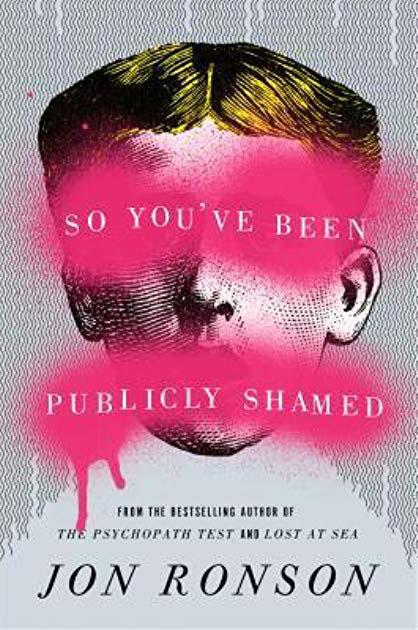Jon Ronson on the porn industry after PornHub and the death of August Ames
In his second podcast series, ‘The Last Days of August’, the writer and broadcaster returns to the porn capital of the world to investigate an adult film star’s demise. Lucie McInerney reports


Your support helps us to tell the story
From reproductive rights to climate change to Big Tech, The Independent is on the ground when the story is developing. Whether it's investigating the financials of Elon Musk's pro-Trump PAC or producing our latest documentary, 'The A Word', which shines a light on the American women fighting for reproductive rights, we know how important it is to parse out the facts from the messaging.
At such a critical moment in US history, we need reporters on the ground. Your donation allows us to keep sending journalists to speak to both sides of the story.
The Independent is trusted by Americans across the entire political spectrum. And unlike many other quality news outlets, we choose not to lock Americans out of our reporting and analysis with paywalls. We believe quality journalism should be available to everyone, paid for by those who can afford it.
Your support makes all the difference.When Jon Ronson answered my first call, he was on the treadmill at the gym. When we take up our conversation again 30 minutes later, he is ebullient, effervescent and probably still experiencing the benefits of a “runner’s high”. Launching into a spirited discussion taking in porn, podcasting and his own mental health, he first touches on voices and accents. Apparently, my Irish lilt has been proven to be one of the most trustworthy accents, which is great for any interviewer to hear, but as for his own… “My voice definitely hovers on the border between good and bad,” he says.
It’s not exactly what you expect to hear from someone hyping his latest podcast, The Last Days of August. But despite having what he describes as “an idiosyncratic voice that some people like and some people hate”, Ronson released his second solo series at the start of this year – and now he’s coming back to the UK on tour to talk about it in his idiosyncratic twang in a theatre near you.
Ronson’s first solo foray, The Butterfly Effect, released in 2017, focused on the porn industry in California’s San Fernando Valley – the adult entertainment capital of the world – and the devastating effects that the unstoppable force that is Pornhub has had on it. The global porn-streaming website’s dominance of free online porn hit the valley hard – and unexpectedly. As with many industries at the start of the digital revolution, it took an outsider to spot the opportunity. Fabian Thylmann, the German tech whizz responsible for the explosive growth of Pornhub after his acquisition of the site, was a key player in the proliferation of free porn to the internet, rocking The Valley’s porn production in the process.

And so it was that Ronson, a 51-year-old British journalist, and Lina Misitzis, his American producer, came to embed themselves in the porn industry in The Valley. They got to know the scene’s various characters – and their foibles – intimately over the course of 18 months as they recorded the seven-episode series. This in-depth knowledge of California’s porn world along with the insight gained from his most recent book, So You’ve Been Publicly Shamed, piqued Ronson’s interest in the circumstances surrounding the death of porn star, August Ames – real name Mercedes Grabowski – weeks after the release of The Butterfly Effect.
In the days leading up to her death, Ames had been the subject of a Twitter pile-on of the kind examined by Ronson in So You’ve Been Publicly Shamed. He contacted Ames’s widower Kevin Moore to ask if they could speak. Moore was keen to highlight the online bullying to which his wife had been subjected and entrusted August’s story to Ronson and Misitzis.
As the early episodes of The Last Days of August reveal a number of secrets about the death of Ames, the listener settles in for what now appears to be the latest smash-hit true-crime podcast. “In the beginning, everyone was saying, ‘Well I think Kevin murdered her ... then you meet Kevin and he’s very emotionally distant, and you start thinking, is he emotionally distant because he’s got all these secrets?”, Ronson admits.
He bursts that bubble early in the second episode: “I don’t want this to be one of those shows that creates narrative tension by fuelling suspicion that a person might be a murderer.” Rather than unfolding into a search for August Ames’s killer, the podcast instead evolves into a careful examination of Ames, the impact of social media on her state of mind and her relationship with her husband.
Despite the declaration that “this will not turn out to be a murder mystery”, various interviewees cast doubt on Kevin’s character and his treatment of Ames. There is an insatiable human desire to find a villain in a story, to split the cast of characters into good versus bad. But, Ronson says, “Kevin isn’t a villain, he’s just a complicated messy human being as so many of us are. It took me a while to figure out that he was acting that way not because he had terrible secrets he was hiding from us, but because that’s his personality.”
Ronson’s commitment to seeing both sides of every story resurfaces regularly throughout our chat. “I’m always resistant to a blanket statement,” he says when I ask about the existence of a link between pornography and violence towards women. While he does think “the ubiquity of porn destigmatises sex” in a way that he considers positive, he also accepts that there are downsides. Like the 18-year-olds flooding The Valley “trying to get into into porn because they grew up on PornHub and they see it as a completely normal career path”. He also points out that the 1,000 per cent increase in erectile dysfunction among 18-24-year-olds coincides with the explosion in the availability of free online porn, which would lead one to believe the “two things are interconnected”. But when referring to sexual coercion of girls by their “suitcase pimp” boyfriends, who usually have no other career and are “employed” by these girls to take care of them on set as well as handling everything from their belongings to the payments they receive, he is quick to point out that there are “girls and women in the industry who are there completely of their own free will”.

Watch Apple TV+ free for 7 days
New subscribers only. £8.99/mo. after free trial. Plan auto-renews until cancelled

Watch Apple TV+ free for 7 days
New subscribers only. £8.99/mo. after free trial. Plan auto-renews until cancelled

Likewise, when the issue of mental health in the industry arises, Ronson is quick to point out that in The Valley, “you’re going to get all different sorts of experiences”. At first, he says, he was “slagged off for talking about ‘daddy issues’ because people said it was a cliche, I didn’t think it was a cliche because I’d never really thought about it in my life before”. But while he heartily confirms that there are “a bunch of people in porn because that’s what they want to do for a living” who are “not f**ked up”, he also concludes that “the borderline personality disorder is certainly more prevalent in porn that it is in other places – and the reason for that is it’s often a response to childhood trauma. One of the ways it manifests itself is being highly sexual, and then the other thing is you can be a drama queen, an extreme drama queen.” However, this deduction is hastily followed by the qualification that there are “many different stories and many different types of people”.
Producing the series and engaging in fractious, sometimes confrontational, conversations with interviewees took its toll on Ronson: “The Last Days of August did impact my mental health.” He describes having “a little bit of a collapse that lasted two weeks” when the show finished. “That’s the only time I’ve ever been affected to the extent that I had to stop work for a while. That’s never happened before.” He realised that “part of the reason for the collapse was I was just internalising everything”. This new self-awareness has led to the decision to take this year easier and deliberately avoid stressful situations – “that’s kind of a response to The Last Days of August”.
One thing he doesn’t find stressful however is standing on stage and speaking to a room full of people because, he says, “in comparison to other authors, I’m f**king great at it”. Ronson is a natural showman who has “taken pleasure over the years from trying to find new ways of doing non-fiction onstage”. He’s not wrong, I’ve seen him three times and each time was a completely new experience – not just because of the new material he was talking about. He’s had bands on stage with him (when talking about the movie Frank – detailing his experience of working with Frank Sidebottom) as well as special guests, and has plans for this tour to be a similarly fresh experience for the audience with an audio-visual element.
Ronson’s commitment to producing something new for his live show could wind up clashing with his promise to himself to take 2019 easy but it also comes at a time in his career when he has done so much work that he can slow down a little bit. “I feel that, for the first time in my life, I can relax a little now,” he tells me, before going on to contradict that sentiment by saying he’s now working on three or four new projects. But despite his breakneck speed of delivery during our call (the runner’s high obviously endures) and his apparent inability to do nothing, these days he doesn’t feel he has as much to prove as he used to. “I can actually spend some time sitting in the garden, looking at the trees.”
Jon Ronson’s tour Tales from The Last Days of August & The Butterfly Effect starts on 6 May in Cambridge Corn Exchange before travelling around the UK and Ireland; see jonronson.com for details
Join our commenting forum
Join thought-provoking conversations, follow other Independent readers and see their replies
Comments